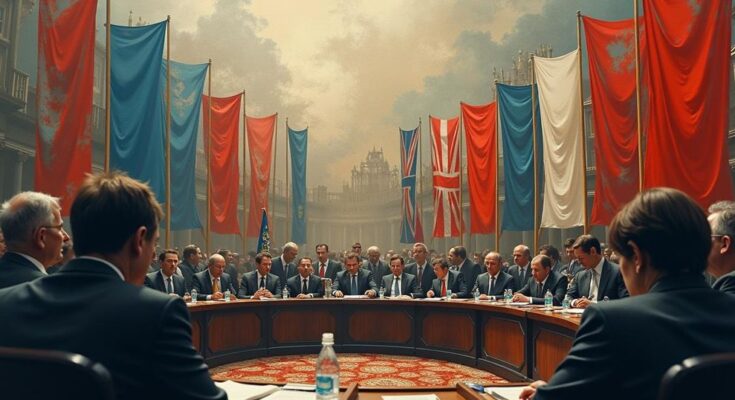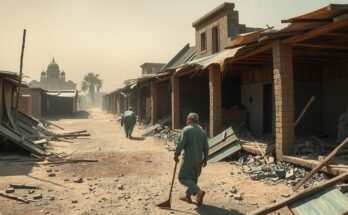Hillel Neuer discusses the corruption of the U.N. Human Rights Council, highlighting the re-election of Qatar amidst its involvement with Hamas and human rights abuses. He criticizes the presence of dictatorships like China and Cuba while acknowledging the election of Czechia as a positive, albeit small, sign of democratic representation. Neuer’s examination reveals a stark contrast between oppressors and defenders within the Council, calling for a renewed focus on genuine human rights advocacy.
In a striking discussion on i24News, Hillel Neuer, the Executive Director of United Nations Watch, shed light on the alarming transformation of the U.N. Human Rights Council. Once envisioned as a beacon of justice and a protector of human rights, it has devolved into a sanctuary for oppressive regimes. Neuer emphasized that an astonishing 60% of the Council’s members comprise dictatorial states and human rights offenders. Countries like China, which suppresses fundamental freedoms of speech and religion, and Cuba, notorious for imprisoning political dissidents, maintain their positions. Qatar’s recent re-election stands as a testament to this corruption; a nation known for its severe human rights violations and sponsorship of terrorism through channels like Al Jazeera, now sits amongst the champions of human rights. Despite this troubling backdrop, Neuer noted a hint of optimism with the re-election of Czechia, highlighting its role as a staunch ally against Iranian terrorism. He remarked that while democratic nations on the Council are often outnumbered, their presence could strengthen the moral dissent against resolutions that inadvertently legitimize dictatorial practices. Neuer recounted his confrontation with Alena Douhan, a U.N. expert who has controversially defended dictatorships and received substantial funding from regimes like China and Qatar for her stances. The spotlight also fell on Francesca Albanese, who has openly supported Hamas and made incendiary claims about American politics. Facing the stark contrast between who holds power within the Council and those genuinely fighting for human rights, Neuer’s words serve as a powerful call to action against the manipulation of this once noble institution.
The U.N. Human Rights Council was established post-World War II, with the ambitious mission to promote and protect human rights globally. However, in recent years, its integrity has come under scrutiny, particularly as countries with egregious human rights records have secured seats and influence within the body. This shift has raised concerns about the effectiveness of the Council in truly advocating for the rights of individuals while many member states face accusations of severe oppression. Neuer’s insights reveal the complexities at play as geopolitics intertwine with human rights advocacy, often leaving the voices for genuine justice stifled amidst political maneuvering.
The discussion underscores the pressing need for reform within the U.N. Human Rights Council, as it grapples with the contradiction of dictatorial representation versus the true protectors of human rights. As authoritarian regimes gain more footing, the call for accountability and genuine advocacy resonates louder, demanding that the Council return to its foundational purpose of safeguarding human dignity and freedom worldwide.
Original Source: www.miragenews.com



